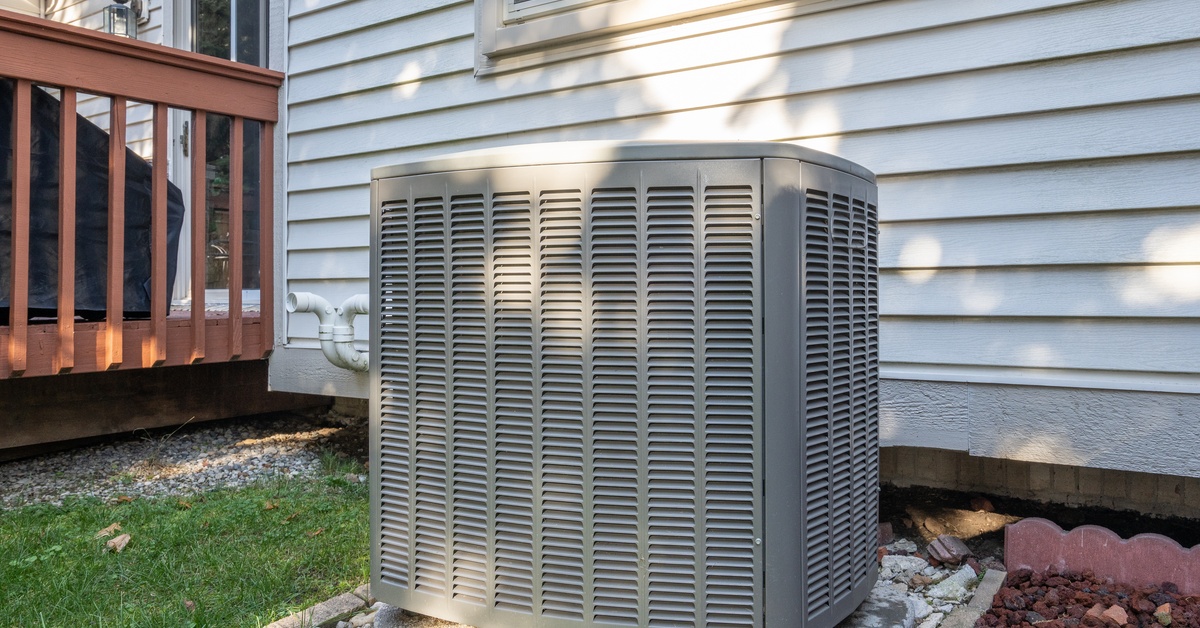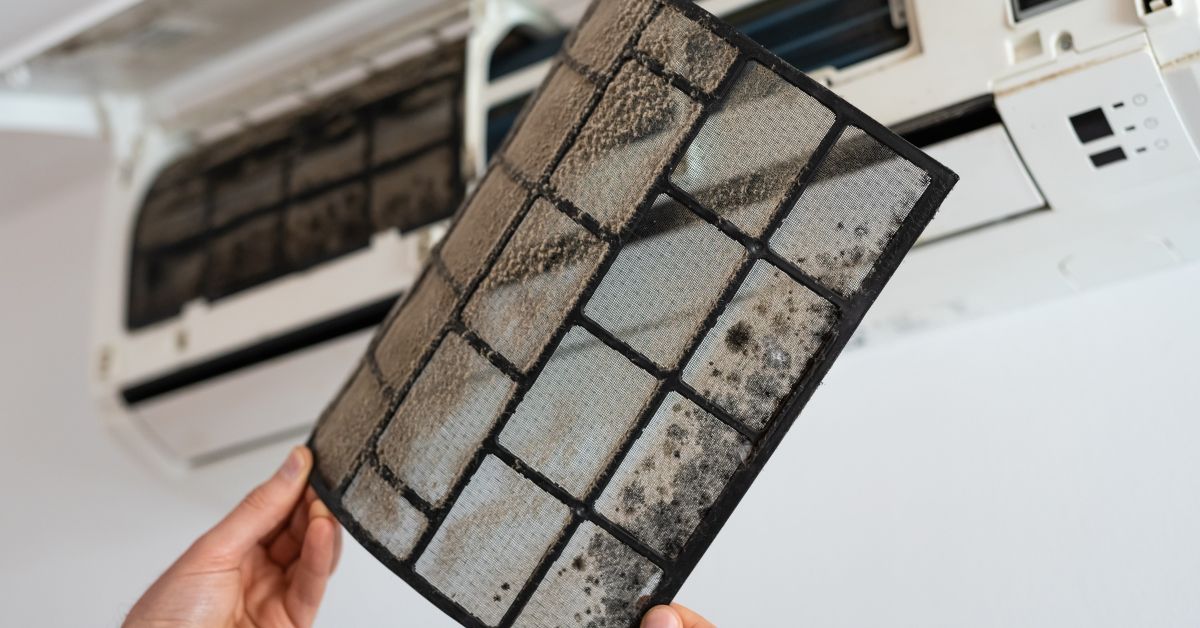- 24/7 Emergency HVAC Repair
- Financing Available
- We Accept All Major Credit Cards
How Your Home’s HVAC Can Affect Your Spring Allergies
Spring in Philadelphia is a time of renewal, blossoming flowers, and, unfortunately, seasonal allergies. For many homeowners, spring allergies mean dealing with sneezing, itchy eyes, and relentless congestion.
While most people focus on outdoor allergens, what happens inside your home also impacts how you feel, especially when it comes to your HVAC. Explore how your home’s HVAC system can affect your spring allergies and discover actionable steps to improve your home’s air quality.
The Connection Between HVAC Systems and Indoor Air Quality
HVAC systems regulate your home’s temperature and circulate the air you breathe every day. While this circulation maintains comfort, it also spreads allergens, such as pollen, dust, and mold spores, if you don’t properly maintain it.
HVAC systems may be a friend and a foe. On one hand, they filter out allergens and improve air quality. On the other, without regular care, they become conduits for distributing allergens throughout your home. The key is understanding how your system operates and what measures to take to minimize allergen exposure.
Common Spring Allergens Found Indoors
Spring allergens often start outside but find their way indoors. Pollen, a significant trigger, hitches a ride into your home through open windows, doors, and even on your clothing. Inside, dust mites, mold spores, and pet dander compound the problem, often collecting in HVAC systems.
These allergens can circulate throughout the house when introduced to your HVAC system, worsening symptoms for those with allergies. Identifying and addressing these allergens can drastically improve your indoor air quality.
HVAC Filters and Their Role in Managing Allergens
The HVAC’s filter is one of the most effective tools to combat indoor allergens. HEPA (High-Efficiency Particulate Air) and higher MERV-rated filters trap tiny particles, preventing them from recirculating in your home.
However, choosing the right filter for your needs and routinely changing it is vital. A clogged or low-quality filter won’t do much to keep allergens at bay. Aim to replace 1” filters every one to three months, particularly during allergy season, or up to 12 months with a 5” thick pleated media filter.
The Issue of Dirty Ductwork
Your ductwork is your HVAC system’s highway, delivering air to every corner of your home. However, when ducts accumulate dust, mold, and other allergens, they worsen air quality.
Signs that your ducts might need cleaning include visible dust near vents, musty odors, or increased allergy symptoms among household members. Professional duct cleaning eliminates these irritants, contributing to cleaner, healthier air. You can easily vacuum out floor vents by simply removing the register and pushing the hose into the opening, as it is a common place for debris to accumulate there.
HVAC Fan Settings and Air Circulation
Your HVAC system’s fan settings influence how allergens travel through your home. For example, running the fan in the “On” position allows the system to constantly filter the air but may worsen allergies by continuously circulating airborne particles if you don’t have a good filter in place.
We highly recommend the installation of a high MERV-rated media filter if you only have a 1” filter. However, it might be best to use the “auto” fan setting in the meantime to reduce the circulation of allergens.
Dealing With Mold in Your HVAC System
Mold thrives in moist environments, and your HVAC system, particularly the condenser or evaporator coils, provides ideal conditions. Therefore, mold spores can enter your home through the air ducts, triggering allergic reactions.
Consult a professional immediately if you notice musty smells or visible mold near vents. Regular cleaning and dehumidification prevent mold growth and keep your home’s air healthy. Adding a UV light in the indoor coil can prevent mold growth.
The Role of Humidity and Your Indoor Air Quality
Balancing indoor humidity is essential for managing allergens. Too much humidity encourages mold and dust mites, while too little irritates your respiratory system.
Your HVAC system regulates humidity with humidifiers or dehumidifiers. The ideal indoor humidity level is between 30% and 50%. Heat pumps are a great addition to your home to maintain a stable humidity level and prevent allergy flare-ups as they continuously circulate air, avoiding an overly dry or saturated interior.
Consider the heat pump installation services from W.F. Smith for a smooth installation that keeps the air fresh and creates an environment that deters mold spores. Maintaining this balance creates a healthier living environment.
Regular Maintenance and Its Impact on Allergies
Routine HVAC maintenance is one of the best ways to ensure cleaner indoor air. Our professional inspections identify potential issues, such as dirty filters, ductwork, or mold, addressing them before they worsen.
Make maintenance tasks a regular part of your seasonal upkeep, such as filter replacement, duct cleaning, and coil inspections. This proactive approach significantly reduces allergens and enhances your system’s performance.
Air Purifiers and Their Compatibility With HVAC Systems
Air purifiers add an extra layer of defense against airborne allergens. Whole-home air purifiers, which integrate with your HVAC system, provide comprehensive coverage. Pairing air purifiers with a well-maintained HVAC system helps you effectively tackle even the tiniest allergens, ensuring cleaner, fresher air throughout your home.
Portable units are another option for added filtration in specific rooms, but the low amount of airflow limits their effectiveness relative to their cost.

Upgrading Your HVAC System for Allergy Relief
It might be time for an upgrade if your current HVAC system has seen better days. Modern systems often come with advanced features, such as UV lights that sterilize air or high-efficiency filters that capture microscopic particles.
Consult the experienced technicians at W.F. Smith for a recommendation in making upgrades. Professional help is always the best step when moving forward with renovations, and our experts will work with you to improve your home to fit your needs.
Sealing Your Home To Limit Allergen Entry
Your home’s defense against outdoor allergens begins with proper sealing. Cracks, gaps, and poorly insulated areas allow pollen, dust, and other irritants to infiltrate your living space.
Ensure proper sealing around windows and doors, and invest in high-quality insulation to reduce allergen entry. These steps improve air quality and boost energy efficiency.
Tips for Allergy-Proofing Your Home With Your HVAC Unit
It’s important to give your HVAC unit a helping hand to ensure it doesn’t carry the full responsibility of keeping your home allergy-free. Here are some daily habits to incorporate to minimize allergens indoors:
- Clean or vacuum floors and furniture regularly using HEPA-equipped devices.
- Avoid leaving windows open during high-pollen days.
- Run your HVAC system when pollen levels are high to filter outdoor air before it enters the home.
- Wipe down air vents and registers as part of your cleaning routine.
Small, consistent actions combined with regular HVAC maintenance make a significant difference in your household’s overall health.
Your home’s HVAC system can affect your spring allergies in many ways, and maintaining it is the key to creating a cleaner, healthier home environment. Spring allergies may be inevitable, but their impact doesn’t have to be. Take proactive steps with your HVAC system, and enjoy the season with fewer sneezes and more smiles.

They have been my service people for over 25 years need I say more.



